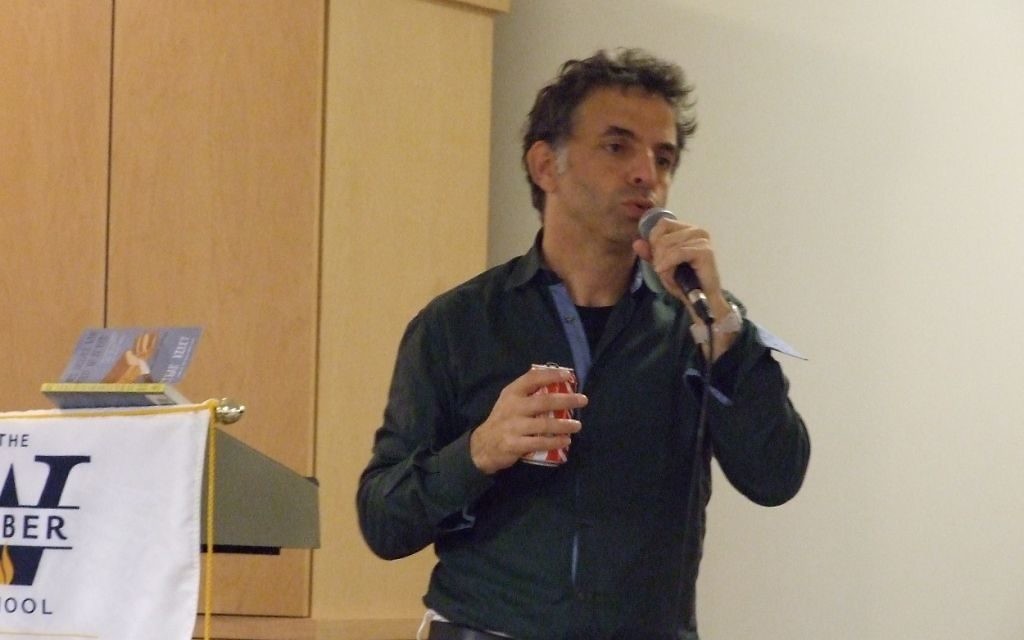Keret’s Diagnosis: Disturbingly Sane
Etgar Keret received reassurance that he is not a madman during a public therapy session at Congregation Or Hadash on Wednesday, Oct. 21.
The Israeli author delivered three readings, including two from his latest book, memoir “The Seven Good Years,” and joined the audience of about 200 people in watching three of his funny short films, introduced by the Weber School’s Barbara Rosenblit.
But it was the therapy session with Emory University psychologist Marshall Duke that set the evening apart from most author appearances. The session provided a glimpse into a mind known for producing an often-twisted view of the world.
Get The AJT Newsletter by email and never miss our top stories Free Sign Up
“I’ve never been to therapy,” Keret said as he took his position on the couch.
The writer, a vegan who said he hasn’t had a hot dog since he was 5, discussed with Duke a dream in which he is a refugee forced to operate a hot dog cart in a land where the people speak “the scariest language in the world,” a combination of German and Japanese.
Keret’s conclusion: He’s afraid of being a refugee, and he’s afraid of hot dogs.
“We all have crazy thoughts,” Keret said. “But when we go out in the world, some of us are able to contain them.”
He did not show much creativity, let alone craziness, with his literal descriptions of a series of Rorschach ink blots, but he did reveal the model reader for his books: himself.
“When I write stories, I very much have no idea what’s going to happen,” so he keeps writing to find out, Keret said.
He said he doesn’t always like the outcome because many of his protagonists refuse to conform to the system even when it would be beneficial. “I would have said yes,” Keret said. “Why did they say no?”
His self-analysis is that he’s a writer who doesn’t give his target reader, who is himself, what he wants. “I’m a discontented reader of my stories.”
Duke concluded that Keret is “certainly not a madman, but your mind is free.”
His work stretches readers’ minds, Duke said. “When we read your work, we don’t go back.”
Keret seemed to appreciate the diagnosis, saying, “Who knew therapy could be so much fun?”





comments